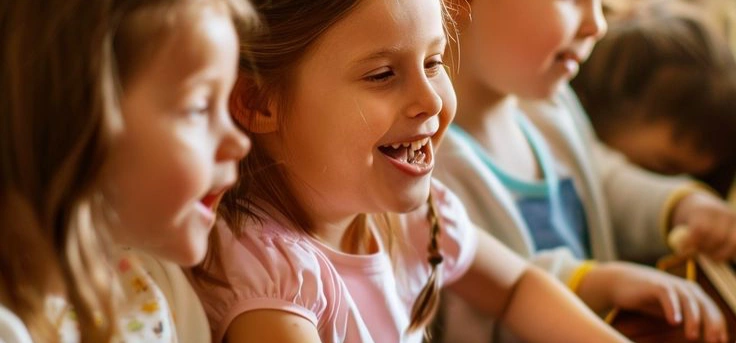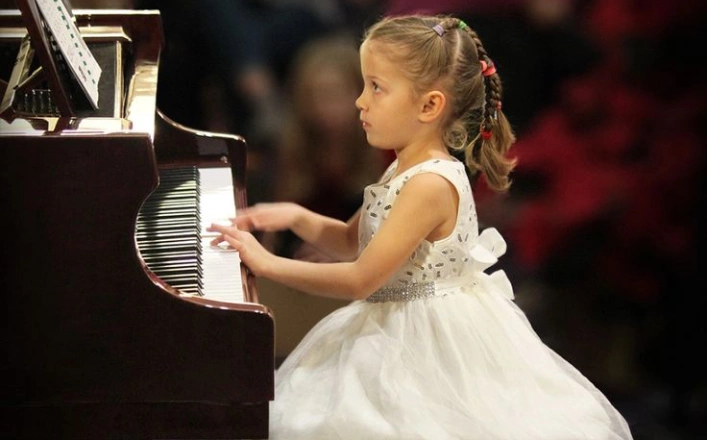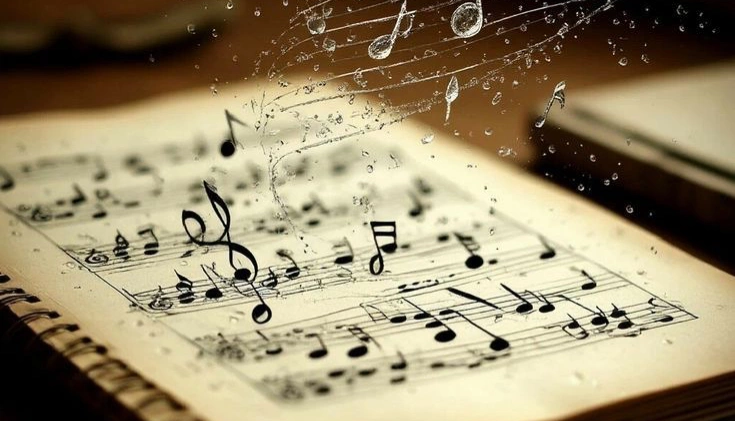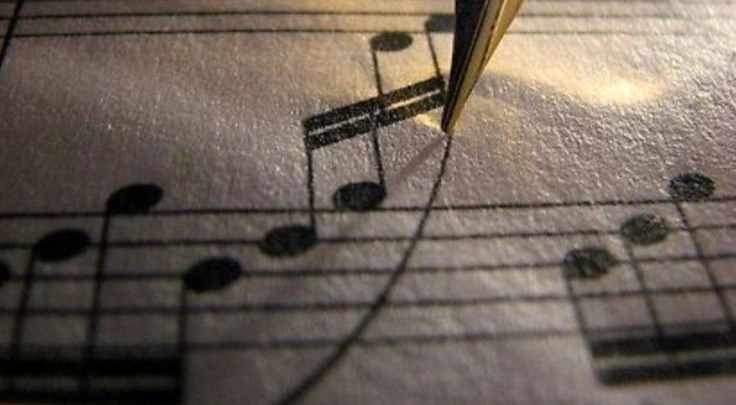Metal Posts on Crowch
Music is not only a form of art — it’s also a powerful stimulus for brain development. Modern scientific research confirms that sounds, especially music, can influence a baby’s growth even before birth. By the 16th to 20th week of pregnancy, the fetus begins responding to sounds, and by 26–28 weeks, it can distinguish rhythms, tones, and even recognize the mother’s voice.
When an expectant mother listens to calming, harmonious music — particularly classical or natural sounds — her stress levels decrease, her heartbeat stabilizes, and her breathing slows. These physiological effects positively impact the baby: the fetal heart rate becomes steadier, stress hormones like cortisol are reduced, and the baby experiences a sense of safety and calm.
Music also stimulates the baby’s sensory and neurological development. Rhythm and melody activate the auditory areas of the brain, promoting the formation of neural pathways. Some studies suggest that regular exposure to music during pregnancy may influence future cognitive abilities — such as memory, language development, and concentration.
Interestingly, newborns can recognize melodies they heard in the womb. This suggests that musical exposure before birth leaves a lasting subconscious imprint. Familiar melodies can later comfort and soothe the baby, creating a sense of continuity and emotional security.
However, it’s important to note that loud, sharp, or aggressive music may cause discomfort or restlessness. The best choices are gentle compositions with steady rhythms and positive emotional tones.

Music is more than a form of artistic expression — it’s a profound and powerful tool that can influence brain development, even before a baby is born. Today’s scientific research supports what many cultures have long intuited: that sound, particularly music, plays a meaningful role in fetal development and early emotional bonding.
By the 16th to 20th week of pregnancy, the fetal auditory system begins to function, allowing the baby to respond to external sounds. Around 26 to 28 weeks, the fetus becomes increasingly sensitive to sound and can distinguish between different rhythms, tones, and even voices. One of the most important sounds a baby becomes attuned to is the mother’s voice — a sound that becomes deeply familiar, comforting, and foundational to early bonding.
When an expectant mother listens to calming, harmonious music — such as soft classical pieces, lullabies, or natural ambient sounds (like ocean waves or birdsong) — her body often responds with reduced stress levels, more stable heart rate, lower blood pressure, and slower, deeper breathing. These physiological changes create a more tranquil internal environment for the baby, with benefits including:

- A steadier fetal heart rate
- Lower levels of stress hormones such as cortisol
- A general sense of safety and calm, communicated through hormonal and physiological pathways
In essence, music not only soothes the mother — it also soothes the baby.
But the impact of music doesn’t stop at emotional regulation. Neurologically, music serves as a powerful stimulus for fetal brain development. Rhythmic patterns, pitch changes, and melodic structures activate the auditory cortex of the developing brain. This early stimulation helps in forming neural connections, laying the groundwork for cognitive skills later in life. Some studies suggest that babies who were regularly exposed to music in utero may show earlier development in areas such as:
- Language and verbal memory
- Concentration and attention span
- Emotional self-regulation
Perhaps one of the most fascinating findings is that newborns can recognize and respond to melodies they heard in the womb. This means that prenatal exposure to music creates a kind of subconscious memory, which can later be used to comfort and soothe the baby. Familiar tunes played during pregnancy can become part of a baby's emotional landscape — helping them feel connected, secure, and calm even after birth.
However, it’s important to be mindful of the type of music used during pregnancy. Loud, chaotic, or jarring music — especially with sudden changes in volume or tempo — can create unease or even disturb the baby’s rest patterns. The most recommended music for expectant mothers includes:
- Soft classical compositions (like Mozart or Debussy)
- Peaceful instrumental music
- Gentle lullabies
- Nature sounds, such as rainfall or birdsong
- Culturally meaningful music that evokes positive feelings
It’s also helpful to keep the volume moderate — around 60 to 70 decibels (roughly the sound of a normal conversation). Using headphones on the belly is not advised, as it may overstimulate the baby’s developing ears.
Music during pregnancy is not just entertainment — it’s connection. It nurtures emotional bonds, supports brain development, and creates a shared experience between mother and child. Whether through soft singing, gentle melodies in the background, or simply humming during daily routines, these musical moments become part of a baby’s first world — one filled with warmth, rhythm, and love.
In the symphony of life, music is one of the earliest and most meaningful notes.
Music is more than sound. It’s a language of emotion, thought, and inner life. It allows people to express what often can't be put into words — joy, grief, confusion, rebellion, love, or freedom. From ancient rituals to modern playlists, music has always been a core part of how humans connect to themselves and the world.
For many, music acts as a kind of emotional therapy. Through melody, rhythm, and lyrics, people process pain, celebrate life, and discover parts of themselves. Teenagers, for example, often use music to shape identity, distance themselves from authority, and find belonging through shared taste and values.
Music is also a voice — especially for those who struggle to express themselves in conventional ways. Songwriters, producers, singers, and instrumentalists all use music to tell their story. Whether it’s a quiet piano piece or a loud hip-hop track, it carries a message that words alone often cannot.
Music connects people. Even when language divides, a melody can unite. Individuals from different cultures and countries can feel the same emotion through the same song. This makes music a powerful, universal form of communication.
It’s also a tool for resistance and protest. Through it, artists confront injustice, challenge politics, and express collective struggle. Music becomes not just personal expression, but a reflection of the soul of a generation.

Ultimately, music is a mirror of the inner self. Whether performing, composing, or simply listening, people enter a space of self-discovery. In that space, true self-expression emerges — raw, honest, and profoundly human.

Music is more than just organized sound — it is a language of emotion, identity, memory, and the inner world.Across cultures and centuries, music has served as a mirror for the human experience. It expresses what often can’t be captured in speech — joy, grief, wonder, heartbreak, rebellion, healing, or freedom. From ancient chants around the fire to curated playlists on a smartphone, music is one of the most profound ways we connect — to ourselves, to others, and to something greater.
For many, music functions as a form of emotional therapy. In a song, we may find words for emotions we didn’t even realize we were holding. A melody can validate pain or awaken happiness. A rhythm can ground us in the present moment or carry us into memory. Music provides a safe space to feel. It helps people move through grief, celebrate life milestones, and process trauma. It can make solitude feel full, and togetherness even more powerful.
For teenagers and young adults, music often becomes a compass for identity. Through lyrics, genres, and artists, they find a sense of belonging and expression. Music helps them differentiate from authority, form subcultures, and connect with others who share similar emotions, values, or life experiences. A favorite band or song can become more than a preference — it becomes part of who they are.
But music’s expressive power extends to those who struggle with conventional communication, such as individuals on the autism spectrum, those with trauma, or those with speech impairments. Through instruments, rhythms, and tones, people can externalize what’s internal, often more honestly than through words. In this way, music is a voice — not always verbal, but always truthful.
Artists — whether songwriters, producers, composers, or performers — use music as a storytelling medium. A single track can carry layers of meaning: political resistance, heartbreak, nostalgia, or hope. From the intimate beauty of a solo violin to the explosive energy of a hip-hop anthem, music communicates across emotional frequencies that words alone cannot touch.
🌍 Music as a Universal Bridge
One of the most magical aspects of music is its universality. Even when language divides, a melody can unite. People from different continents, cultures, and walks of life can experience the same emotion through the same song. A lullaby in one language can soothe a child in another. A beat in one country can move dancers on the other side of the globe.
Because of this, music is often used in diplomacy, humanitarian work, and education — as a tool to build empathy, bridge differences, and share culture. It reminds us that while we may speak different languages, our emotional core is shared.
🎤 Music as Protest and Power
Throughout history, music has also been a tool for resistance. From slave spirituals to punk anthems, from protest songs in apartheid-era South Africa to modern-day hip-hop addressing racial and social injustice — music has given a voice to the silenced. It becomes a soundtrack for collective struggle, a way to challenge systems and inspire change. In this form, music is not just personal — it becomes political.
🧠 Music and the Inner Self
At its most intimate level, music is a mirror of the self. Whether composing, performing, or listening in solitude, music allows us to access inner landscapes that are often hard to reach. It’s in these moments that we feel most human: raw, unfiltered, and deeply present. Music is where self-discovery happens — where our emotions, thoughts, and memories find their voice.
In the end, music is not just something we listen to. It is something we live, something we feel, and something we become. It connects heart to heart, across space and time. It speaks when words fall short. And in every note, beat, and silence, it reminds us of what it means to be alive.